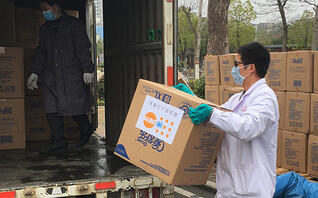COVID-19 pandemic
The COVID-19 pandemic is straining public health systems, triggering unprecedented measures by governments around the world, including movement restrictions and shelter-in-place orders. Evidence from prior outbreaks shows that this crisis could exact a massive toll on women and girls. Women are disproportionally represented in the health and social services sectors, increasing their risk of exposure to the disease. Stress, limited mobility and livelihood disruptions also increase women’s and girls’ vulnerability to gender-based violence and exploitation. And if health systems redirect resources away from sexual and reproductive health services, women’s access to family planning, antenatal care and other critical services could suffer.
UNFPA is on the ground, distributing personal protective equipment for health workers and supporting health systems where needed. UNFPA is also supporting efforts to learn more about the virus and its impact to better serve the most vulnerable. “While fear and uncertainty are natural responses to the coronavirus, we must be guided by facts and solid information,” said Dr. Natalia Kanem, UNFPA’s Executive Director. “We must stand together in solidarity, fight stigma and discrimination, and ensure that people get the information and services they need.”
UNFPA is appealing to donors to fund its COVID-19 response targeting countries with weak public health and social support systems, including countries in fragile and humanitarian situations, at a projected cost of US$187.5 million.
This page brings together information, updates technical guidance and more on UNFPA's response to the global pandemic:
COVID-19 Frequently Asked Questions


